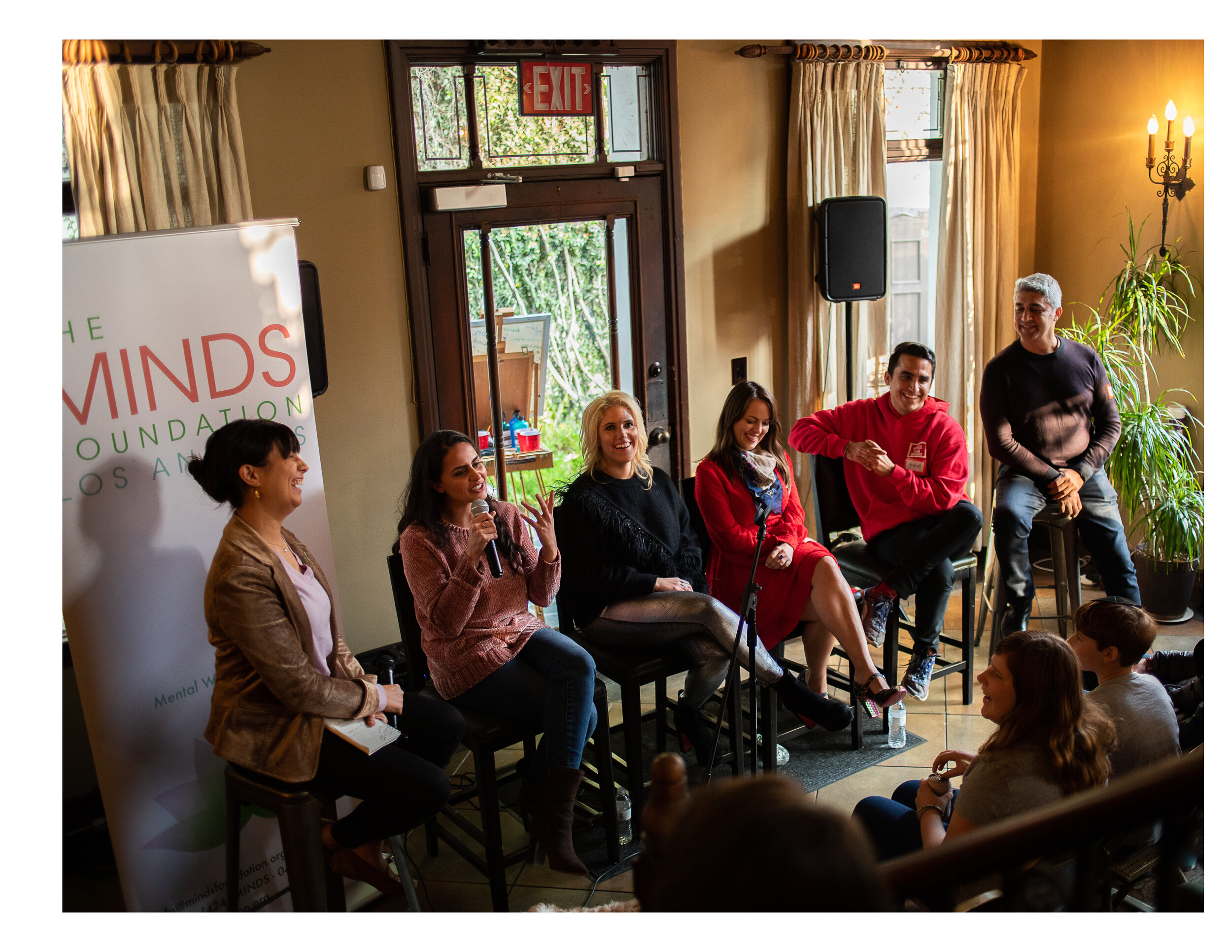Our Programs
School Mental Health Education
Medical literature shows that targeting mental health issues at a young age can result in better outcomes later in life. Globally, there is 1 suicide occurring every 40 seconds. Youth are also essential to the dissemination of information and change in the perceptions of mental health. Therefore, we strive to focus on delivering mental health education to youth in schools. This program is tailored to cover topics such as autism, OCD, depression, anxiety, self-image, suicide, cyber-bullying, substance & alcohol use, eating disorders, and internet addiction.
Mental Health Education for Schoolchildren
Teacher Training Program
Mental Health Education for Parents
Community Mental Health Education
Focusing on community mental health, we believe that we can create long-lasting change through stigma alleviation and increasing mental health literacy to create a more empathic world.
We believe that education surrounding mental health is a critical component that needs to be addressed in order to diminish the stigma surrounding it. In order to address this component, we organize evidence-based mental health education workshops in partnership with local stakeholders. Workshops include discussion, panels, Q&A, visual aids, street plays, interaction with mental health professionals, and a media explaining and depicting mental health symptoms and disorders. Communities are provided with a list of resources as well as being left with visual aids and educational materials.
Community workshops for rural communities
Targeted workshops for urban and semi-urban communities
Task-Shifting
Unfortunately, there is a large treatment gap when it comes to mental health—and this is not localized to any one region. Dependent on the geographic region of our work we build capacity through the concept of task-shifting. In India, we train community members to be able to handle basic risk assessment, counseling skills, and triage. The community mental health workers (CMHWs) are at the frontline in many of the rural and semi-urban communities in which we work. They use their familiarity with the community and leverage their social networks so that we may efficiently reach more people. Furthermore, they support patients through their recovery and continue to educate the community about mental health by hosting workshops and peer support groups. In urban regions, such as Mumbai or Los Angeles, we aim to provide ‘Gatekeeper’ or ‘Peer Support’ training, that enables the non-medically trained individual to understand how to help a loved one or peer in crisis.
These programs not only allows us to increase access to care but mobilizes the community to take charge and improve the health of their own members. Investing in local stakeholders allows us to have a long-term impact.
Suicide Prevention Gatekeeper Training (certified by Suicide Prevention Foundation of India)
Community Mental Health Worker Training Program
Mission 10K: Initiating Conversation About Mental Health Through a Grassroots People’s Movement (in partnership with White Swan Foundation)
MINDS Counseling/Psychotherapy Unit
Due to the increased demand for counseling services that were exacerbated during the COVID-19 pandemic, MINDS currently runs a (virtual) psychotherapy clinic. We provide a range of therapeutic modalities including: CBT and cognitive therapies, REBT, Person-centred, Interpersonal relations, DBT, couples therapy, psychodynamic psychotherapy. We are equipped to treat depression, anxiety, relationship issues, OCD, eating disorders, adjustment disorder, suicidal thoughts/ideation, personality disorders, bipolar disorder, and dysthymia.
MH4ALL 24x7 Help Line
Many existing hotline and helpline services tend to manage acute crisis, but do not ensure that individual receives follow up and/or long-term care. Each caller to the MINDS helpline will receive a follow up call within 72 hours of their initial call and also at 1 month and 6-month timepoints. Additionally, if a caller is referred to a hospital, tele-therapist, or partner NGO, we will ensure with the referral location that there was adequate follow up by the individual. The important factor to keep in mind, is that even if the individual does not follow up with advised referral, we are part of the individual’s recovery and healing. Research has shown that even one phone call conversation provides significant impact in one’s mental health.
Corporate wellness
In a world where the line between workplace and personal space has become thin, it is important to train peer champions and deliver bespoke workshops to create positive environments that cater to employees’ wellness.
Advocacy
Mental health is often neglected in the global health field. We believe that storytelling and media are two of the most powerful platforms in which we can bring about real change and attention to this ever-growing issue. Through film, poetry, art, media partnerships, PSAs, and grassroots movements—we can create true change and bring a voice to those often left in the dark.
Minds Fellowship
The MINDS Foundation Fellowship Program is an opportunity to dive into a global health and cultural experience for students and professionals. All volunteers that participate in the Program are MINDS Fellows. They will participate daily with local psychiatrists, local neurologists, local nurses, and local social workers to help diminish the stigma towards mental illness, assist with educational sessions, and educate patients and families in better treatment methods and resource availability.
Available in Gujarat and Mumbai






